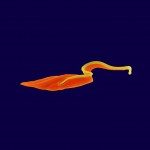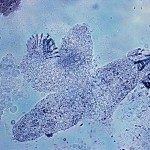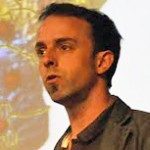A 24-month post-doctoral position starting on March 1st 2025 and funded by the French National Research Agency (ANR) is available in the Trypanosome Cell Biology Unit at Institut Pasteur in Paris (Trypanosome Transmission Group: https://research.pasteur.fr/en/team/group-brice-rotureau/).
Project: TrypaDiff – Glycerol, a new key player in the trypanosome parasite cycle
Trypanosoma brucei is an extracellular parasite responsible for sleeping sickness in Africa and transmitted by a blood-feeding insect vector, the tsetse fly. In its mammalian host, the rapidly dividing slender forms predominate in the blood and tissues. At the peak of parasitaemia, slender forms differentiate into growth-arrested stumpy forms (ST) to protect the host by preventing high parasitaemia. Slender to stumpy differentiation relies on a quorum sensing mechanism triggered by the accumulation of di- and tripeptides produced by oligopeptidases excreted by the parasites. The current model of T. brucei transmission from mammals to the insect vector emphasises the key role of the quorum sensing-derived stumpy forms (ST-QS) produced in the blood. However, this may not be the only differentiation pathway.
Our recent unpublished data showed that glycerol, which is abundant in the skin and adipose tissues where the parasites also reside, induces differentiation of slender to stumpy-like forms (ST-Glyc), which are competent for differentiation into parasitic forms present in the insect. We thus propose a rational working hypothesis, in which the glycerol present in the skin would induce the production of ST-Glyc mostly responsible for the parasite transmission to the fly.
To study this new paradigm, our ANR-funded consortium composed of Dr. Brice Rotureau (IPP), Dr. Lucy Glover (IPP) and Dr. Frédéric Bringaud (Bordeaux, coordinator of the TrypaDiff project) will (i) characterize glycerol-induced stumpy-like forms, (ii) determine the biological relevance of these parasites, and (iii) characterize the signaling pathway(s) involved in their glycerol-induced differentiation. This program will contribute to a better understanding of the developmental biology of trypanosomes responsible for human and domestic animal diseases and will highlight possible new ways to control parasite transmission.
Experimental approaches: CRISPR-cas9 genetic engineering, microfluidic organoid model, experimental infections in mice and flies, in vivo imaging.
Requirements: Candidates with a recent PhD in Biological Science, especially in Parasitology or Cell Biology are encouraged to postulate. Experience in experimental infection in mice is required. Highly motivated and autonomous candidates are wanted. Skills in entomology or in vivo imaging or microfluidic models would be greatly appreciated.
Application: Applicants should send a CV, a bibliography, a motivation letter and the names of three references in a single pdf file to Dr. Brice Rotureau (rotureau@pasteur.fr) before November 30th 2024.




